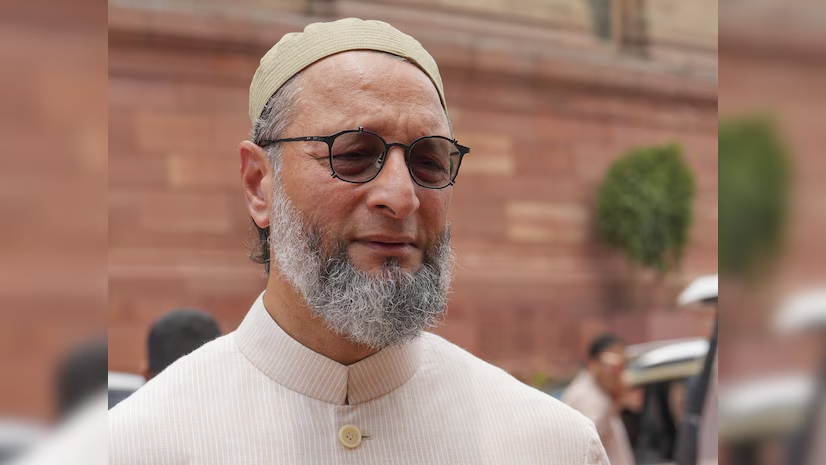Asaduddin Owaisi, the leader of the All India Majlis-e-Ittehadul Muslimeen (AIMIM), has once again demonstrated his proclivity for controversial and divisive rhetoric by invoking Palestine during a sensitive oath-taking ceremony. Owaisi’s call for Prime Minister Modi to stand with Palestinians and his inflammatory label of Israeli Prime Minister Netanyahu as a “devil” exemplifies his disregard for India’s diplomatic stance and highlights his agenda of stoking communal sentiments for political gain.
Owaisi’s statements not only undermine India’s balanced diplomatic relations but also expose his intent to polarize communities. His rhetoric suggests a prioritization of international Islamic solidarity over India’s national interests. This is particularly problematic given that Owaisi has built his political career on an anti-Hindu narrative, often positioning himself as the defender of Muslim interests against a perceived Hindu majority oppression.
Furthermore, Owaisi’s efforts to expand AIMIM’s influence across various states, including recent electoral ventures in Gujarat and West Bengal, reveal a strategy focused on exploiting communal tensions. By portraying himself as a champion of the marginalized Muslim population, he aims to consolidate votes based on religious identity rather than promoting a unified national agenda.
In a time when India needs cohesive leadership to address its internal and external challenges, Owaisi’s divisive tactics threaten to derail communal harmony. His focus on international conflicts, such as the Israel-Palestine issue, detracts from pressing domestic issues and serves to ignite unnecessary tensions within the country.
Owaisi’s political maneuvers and inflammatory rhetoric are not just a threat to India’s secular fabric but also highlight a disturbing trend of using religion as a tool for electoral success. It is imperative for Indian leaders to prioritize unity and national interest over divisive politics. Owaisi’s actions, therefore, deserve strong criticism for their potential to harm India’s social and political stability





